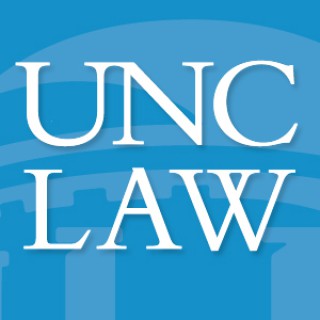
U.S. v. Jones: Defining a Search in the 21st Century
Follow U.S. v. Jones: Defining a Search in the 21st CenturyU.S. v. JONES: DEFINING A SEARCH IN THE 21ST CENTURY The 2013 NC Journal of Law and Technology Symposium was held on Friday, January 25, 2013 in Chapel Hill. U.S. v. Jones, decided by the United States Supreme Court on January 23, 2012, held that a police department’s attachment of a GPS device to…
- Feb 14, 2013 LATEST EPISODE
- infrequent NEW EPISODES
- 1h 5m AVG DURATION
- 3 EPISODES
More podcasts from UNC School of Law
Latest episodes from U.S. v. Jones: Defining a Search in the 21st Century

U.S. v. Jones, decided by the United States Supreme Court on January 23, 2012, held that a police department’s attachment of a GPS device to an unknowing suspect’s vehicle and the subsequent monitoring of that device constituted a search under the Fourth Amendment. Topics for discussion include the third party doctrine; viable ways for law enforcement agencies to structure investigative processes involving digital technology; an overview of the cases that have come out since Jones that involve GPS tracking; the mosaic theory; and how technology impacts the “poverty exception” to the Fourth Amendment. Panelists Stephanie Pell, Principal at SKP Strategies, LLC Professor Tamara Rice Lave, Associate Professor of Law, University of Miami Professor David Gray, Associate Professor of Law, University of Maryland Moderator Dean Richard E. Myers, II, Associate Dean for Student Affairs and George R. Ward Associate Professor of Law, UNC

U.S. v. JONES: DEFINING A SEARCH IN THE 21ST CENTURY The 2013 NC Journal of Law and Technology Symposium was held on Friday, January 25, 2013 in Chapel Hill. U.S. v. Jones, decided by the United States Supreme Court on January 23, 2012, held that a police department’s attachment of a GPS device to an unknowing suspect’s vehicle and the subsequent monitoring of that device constituted a search under the Fourth Amendment. Walter Dellinger, who represented Jones before the Supreme Court in the landmark case was the featured keynote speaker. Professor Walter Dellinger is a Partner at O’Melveny & Myers, LLP; Douglas B. Maggs Professor of Law, Duke University; Visiting Professor of Law at Harvard University

U.S. v. Jones: Defining a Search in the 21st Century, Panel 1 NC JOLT 2013 Symposium
U.S. v. Jones, decided by the United States Supreme Court on January 23, 2012, held that a police department’s attachment of a GPS device to an unknowing suspect’s vehicle and the subsequent monitoring of that device constituted a search under the Fourth Amendment. Topics for discussion include the third party doctrine; viable ways for law enforcement agencies to structure investigative processes involving digital technology; an overview of the cases that have come out since Jones that involve GPS tracking; the mosaic theory; and how technology impacts the “poverty exception” to the Fourth Amendment. Panelists Professor Susan Freiwald, Professor of Law, University of San Francisco Professor Stephen E. Henderson, Professor of Law, University of Oklahoma Priscilla (Cilla) Smith, Senior Fellow at the Information Society Project at the Yale Law School Moderator Professor Joseph E. Kennedy, Professor of Law, UNC

















